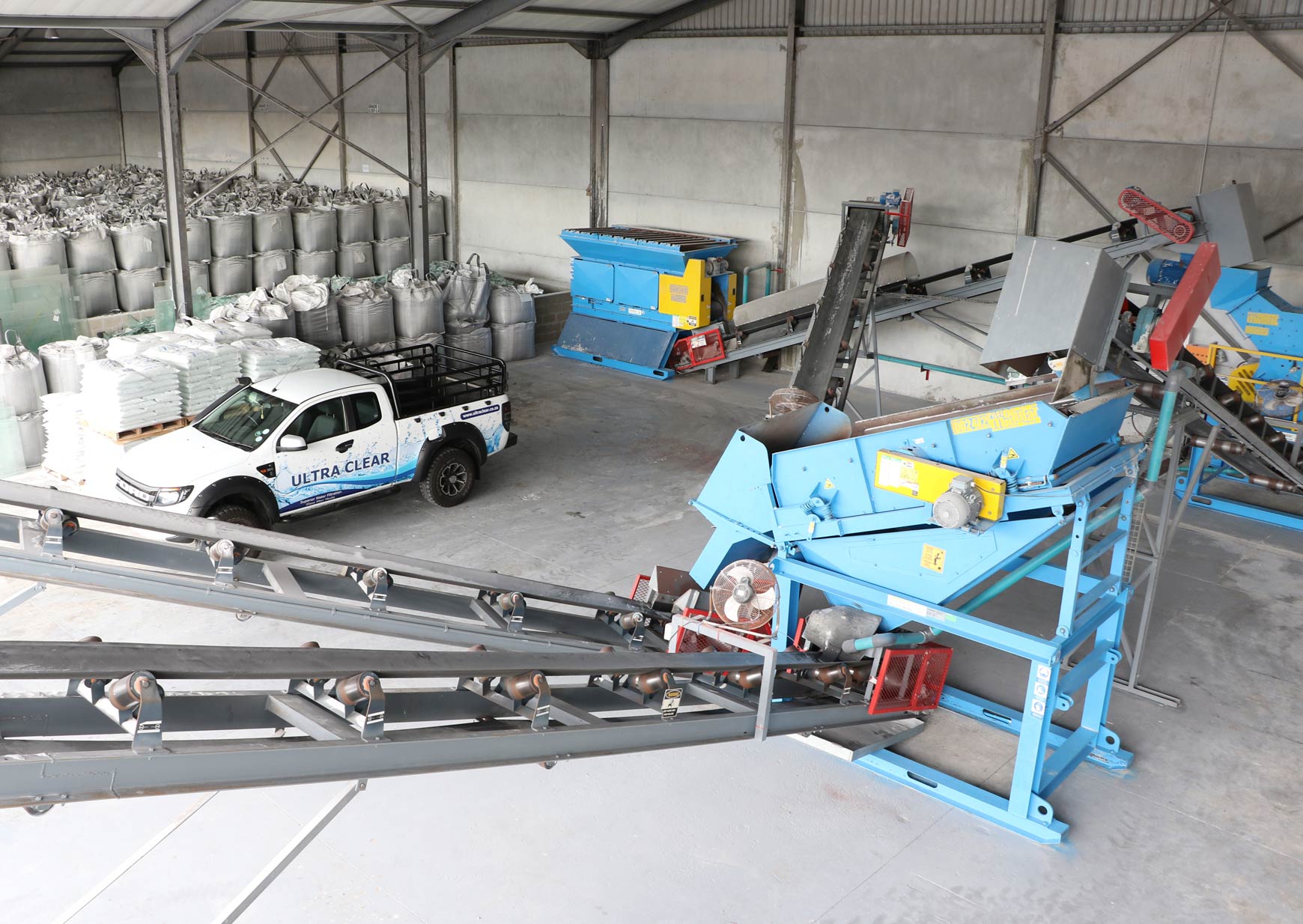Virgin plate glass media revolutionises filtration
29 May 2020

The water usage, energy and chemical cost savings achieved by virgin plate glass media far surpass silica sand alternatives
in a broad range of filtration systems.
Over the past 24 years, Ultra Water has refined its leadership position, pioneering the development and application of OEM filtration technologies aimed at improving industrial and municipal water and wastewater process efficiencies. Operating from its Cape Town head office, the company provides expert advice and custom plant optimisation solutions,
alongside the bulk supply of chemicals. Services include the building and installation of pressure filters, reconditioning filters (pressure and gravity), specially graded filter media, and filter parts. Certifications include ISO 9001:2015 (Quality Management System), ISO 14001:2015 (Environmental Management System) and OHSAS 18001:2007 (Occupational Health and
Safety Management System).
Some 48 months ago, the company’s Ultra Clear division achieved a major R&D breakthrough with the launch of its glass media range. What makes Ultra Clear’s media unique is that it is sourced from plate glass off-cuts. Unlike recycled glass, their specific plate glass contains a perfect balance of metal oxides. The latter improve the durability, shock and temperature resistance of the product.
“We’ve developed a glass crushing and screening plant that can produce speciality graded filter media for all envelopes,” explains Jaco de Villiers, sales and marketing manager, Ultra Clear. “When it comes to grading, particle shape is vitally important for uniform filtration. For this reason, we use a horizontal impact crushing methodology to achieve the desired subangular and highly spherical shape. “This greatly increases the contact time and area, virtually eliminating the channelling effect often caused by sand filter media due to inconsistent grain sizes and packing.
Using glass filter media results in far more effective use of the entire filter bed,” he continues.
Not all glass media is equal “Our glass media also removes aluminium from treated water and improves its turbidity,” says PW Pretorius, CEO Ultra Water, adding that this was demonstrated during a project at Langeberg Municipality. Langeberg’s existing sand filter media was proving ineffective in these areas. “Langeberg invited us to investigated the issue on site. We proposed the use of glass filter media. After replacing their sand filter media with Ultra Clear the problem was solved,” Pretorius continues. Being sourced from plate glass, Ultra Clear’s media is durable and rigid. This means it doesn’t splinter off during the backwash and normal filter cycle. Ultra Clear products are offered in three specifications, namely Grade 0 (0.425 mm to 0.597 mm), Grade 1 (0.597 mm to 1.4 mm) and Grade 2 (1.4 mm to 2 mm).
Key benefits of Ultra Clear Research backed by field studies has shown that Ultra Clear products have a replacement cycle of 15 to 20 years, while silica sand should be replaced every three years. Additionally, Ultra Clear filters to 5 microns, compared with 15 to 20 microns for silica sand. “A small percentage of free radicals (O-and HO-) are present on the surface of each Ultra Clear glass particle. It’s part of the chemical composition of the glass that we use,” says De Villiers.These free radicals exhibit a strong oxidation potential, which protects the media from bacterial growth. It also displays a negative charge that attracts organic matter and metals, which are released during the backwash process.
Compared to sand, glass media saves 50% of the backwash water that is wasted, passing on significant water and electricity savings. With glass media, backwash intervals can also be extended compared to silica sand, which translates into longer and more efficient filter runs. “We’re excited about the growing potential for Ultra Clear media as municipalities, utilities and industry recognise the proven cost benefits and marked improvement in water quality,” De Villiers concludes.
